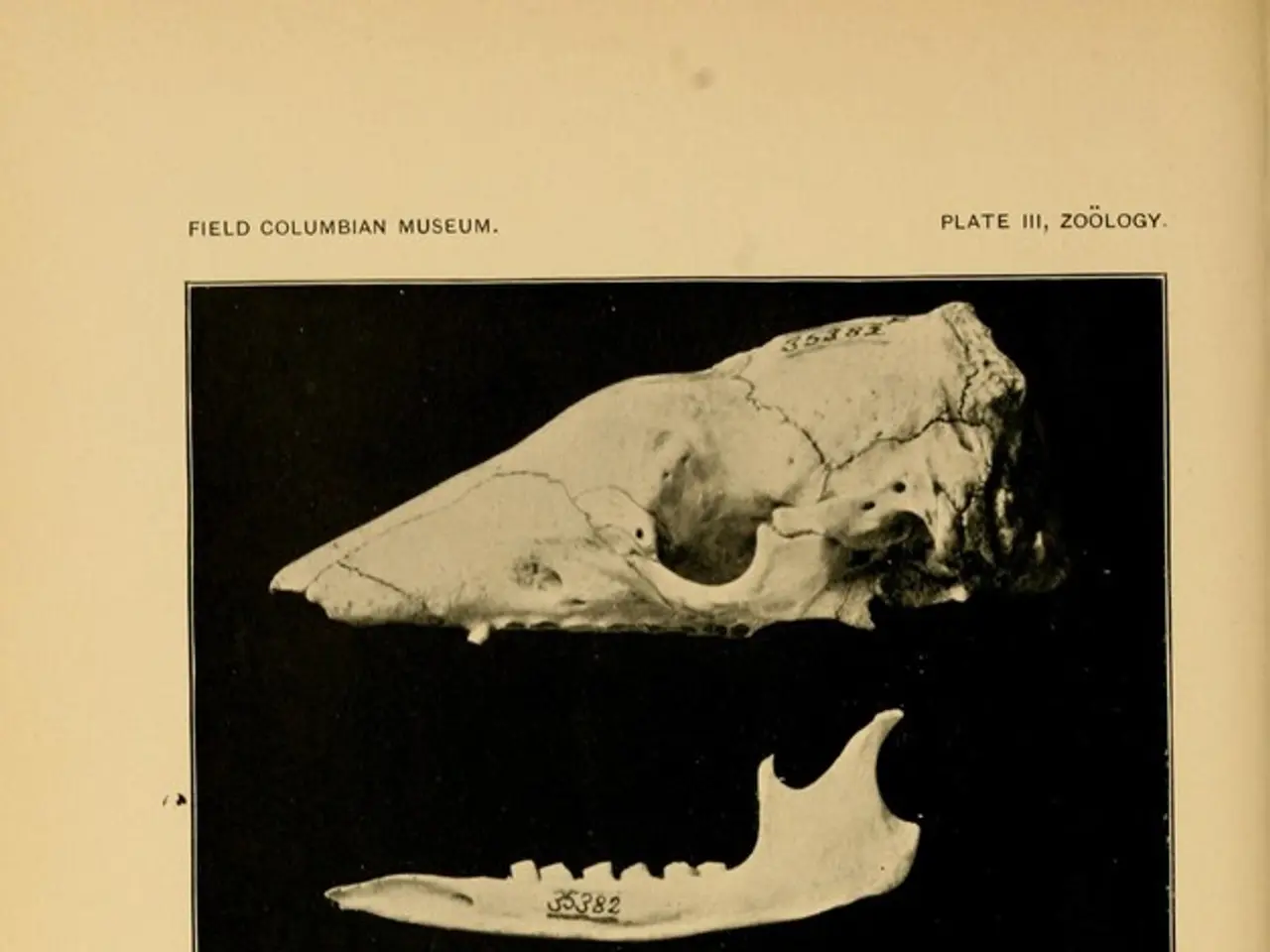Various Vitamin Options for Enhancing Bone and Joint Health: A Comprehensive Look
Bone and joint health is crucial for maintaining an active and healthy lifestyle. While calcium and vitamin D are well-known for their role in bone health, several other vitamins, minerals, and supplements can also contribute to bone strength, density, and joint health.
Magnesium, for instance, is essential for bone formation and helps maintain bone mineral density. It also supports muscle function, reducing cramps and stiffness. Vitamin K, particularly K2, is important for building and maintaining bone health by helping regulate calcium deposition in bones and preventing calcium buildup in arteries.
Vitamin B12 supports bone density and helps prevent brittle bones, especially in older adults who may have absorption issues. Omega-3 fatty acids have anti-inflammatory properties that can ease joint pain and improve joint function, making them commonly recommended for arthritis-related joint issues.
Glucosamine and chondroitin, common supplements used to reduce joint pain and support cartilage health, are often taken by those with arthritis or joint discomfort. However, their efficacy is inconclusive, and further studies are necessary. Collagen peptides aid in regenerating cartilage and supporting connective tissue, which may reduce joint pain and stiffness, particularly as joints age.
Vitamin E, specifically delta- and gamma-tocotrienols, has been shown to decrease bone resorption, increase bone turnover, and improve bone microarchitecture.
Curcumin, found in turmeric, may have a beneficial impact on symptoms of osteoarthritis. SAM-e, a chemical produced naturally in the body with pain-relieving, cartilage-protecting, and anti-inflammatory effects, is available as an OTC supplement and may help with osteoarthritis symptoms, although evidence to support its efficacy is limited.
It's essential to note that before starting any supplement regimen, individuals should consult their healthcare providers to avoid interactions with medications or conditions. Dosage and form matter, and balance is critical to avoid harm. High-quality products verified by third parties should be used to avoid contaminants and ensure correct ingredient potency.
Some vitamins like B12 or D require blood level monitoring to adjust supplementation appropriately. A balanced and varied diet, adequate nutrition, physical activity, and sun exposure for natural vitamin D synthesis remain foundational for bone and joint health.
While dietary supplements can help a person attain an adequate amount of essential vitamins and minerals for bone and joint health, they should not replace a balanced and varied diet. A person should consult a doctor before taking any dietary supplements or making changes to their diet for bone and joint health, as some supplements, vitamins, and minerals can interact with medications, food, and other substances and cause side effects.
Sources of calcium include dairy products like yogurt, milk, and cheese, certain leafy green vegetables, plant-based milk, fruit juices, cereals with added calcium, and canned fish with edible bones. Sources of vitamin K include green leafy vegetables like spinach, kale, and broccoli, some vegetable oils, cereals and grains, certain fruits, meat, dairy, and eggs. Foods rich in omega-3 fatty acids include fish, nuts, seeds, plant oils, leafy green vegetables, and omega-3 fortified foods.
In conclusion, beyond vitamin D and calcium, several other vitamins, minerals, and supplements can support bone and joint health by supporting mineral balance, reducing inflammation, and promoting tissue repair. Emphasising safety through proper use and consulting healthcare providers is crucial.
- Magnesium, essential for bone formation and maintaining mineral density, also supports muscle function and reduces cramps and stiffness.
- Vitamin K, specifically K2, is important for building and maintaining bone health by helping regulate calcium deposition in bones and preventing calcium buildup in arteries.
- Vitamin B12 supports bone density and helps prevent brittle bones, especially in older adults with absorption issues.
- Omega-3 fatty acids have anti-inflammatory properties that can ease joint pain, improve joint function, and are recommended for arthritis-related joint issues.
- Glucosamine and chondroitin, often taken by those with arthritis or joint discomfort, may reduce joint pain and support cartilage health, although their efficacy is inconclusive.
- Vitamin E, specifically delta- and gamma-tocotrienols, has been shown to decrease bone resorption, increase bone turnover, and improve bone microarchitecture.
- Curcumin, found in turmeric, and SAM-e, a chemical produced naturally in the body with pain-relieving, cartilage-protecting, and anti-inflammatory effects, may have beneficial impacts on osteoarthritis symptoms, although evidence to support their efficacy is limited.




